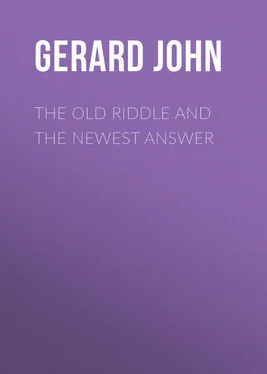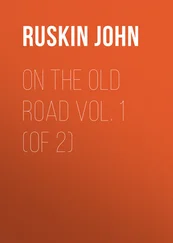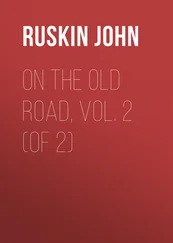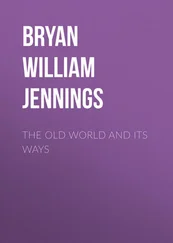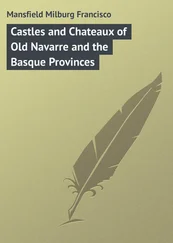John Gerard - The Old Riddle and the Newest Answer
Здесь есть возможность читать онлайн «John Gerard - The Old Riddle and the Newest Answer» — ознакомительный отрывок электронной книги совершенно бесплатно, а после прочтения отрывка купить полную версию. В некоторых случаях можно слушать аудио, скачать через торрент в формате fb2 и присутствует краткое содержание. Жанр: foreign_religion, foreign_antique, foreign_prose, на английском языке. Описание произведения, (предисловие) а так же отзывы посетителей доступны на портале библиотеки ЛибКат.
- Название:The Old Riddle and the Newest Answer
- Автор:
- Жанр:
- Год:неизвестен
- ISBN:нет данных
- Рейтинг книги:4 / 5. Голосов: 1
-
Избранное:Добавить в избранное
- Отзывы:
-
Ваша оценка:
- 80
- 1
- 2
- 3
- 4
- 5
The Old Riddle and the Newest Answer: краткое содержание, описание и аннотация
Предлагаем к чтению аннотацию, описание, краткое содержание или предисловие (зависит от того, что написал сам автор книги «The Old Riddle and the Newest Answer»). Если вы не нашли необходимую информацию о книге — напишите в комментариях, мы постараемся отыскать её.
The Old Riddle and the Newest Answer — читать онлайн ознакомительный отрывок
Ниже представлен текст книги, разбитый по страницам. Система сохранения места последней прочитанной страницы, позволяет с удобством читать онлайн бесплатно книгу «The Old Riddle and the Newest Answer», без необходимости каждый раз заново искать на чём Вы остановились. Поставьте закладку, и сможете в любой момент перейти на страницу, на которой закончили чтение.
Интервал:
Закладка:
Конец ознакомительного фрагмента.
Текст предоставлен ООО «ЛитРес».
Прочитайте эту книгу целиком, купив полную легальную версию на ЛитРес.
Безопасно оплатить книгу можно банковской картой Visa, MasterCard, Maestro, со счета мобильного телефона, с платежного терминала, в салоне МТС или Связной, через PayPal, WebMoney, Яндекс.Деньги, QIWI Кошелек, бонусными картами или другим удобным Вам способом.
1
Collected Essays , i. 35.
2
Lectures on Evolution , Cheap Edition, p. 16.
3
Conservation of Energy , § 210, p. 153.
4
F. W. Hutton, F.R.S., The Lesson of Evolution (1902), pp. 9-11.
5
Nineteenth Century , February, 1889. p. 173.
6
This term is now applied almost exclusively to physical science , or that whose province is the observation of phenomena and inferences directly deducible from them. To avoid confusion, this sense of the word "Science" will be here adopted: it is nevertheless objectionable inasmuch as it implies that – as Professor Huxley following Hume would have it – sound knowledge is restricted, outside the field of mathematics, to "experimental reasoning concerning matter of fact and existence." But although all premisses or data of inference come to us first through the gates of sense, there is much, beyond the limits within which sensible experience is confined, to a knowledge of which inference can lead us, and of which we become certain before experience can verify what we have thus learnt. Thus a chipped flint or a fragment of pottery is universally recognized as evidencing the work of man: a single page of Virgil would suffice – apart from all other information – to prove its author to have been both a poet and a scholar: the shipwrecked mariner cast on an unknown shore argued soundly from the sight of a gibbet that he had reached a civilized land ruled by law. But more than this, Science herself proceeds on this principle to the recognition not only of forces, the character of which is known by previous experience, but of others concerning which she knows nothing at all, except through the very effects from which she argues. Thus, as all bodies left free are found to draw towards one another in a certain mode, it is concluded with absolute confidence that there is a force making them do so, although this is in itself utterly imperceptible, and is known only by the way in which bodies behave under what must be its influence. Yet, who questions the existence of Gravitation? In like manner, the phenomena of light force us to admit the existence of the Ether, as the medium through which its waves are transmitted. Yet, we are compelled to attribute to this medium qualities apparently so incompatible that, as the late Lord Salisbury said, Ether remains, "a half discovered entity." But little as we can realize its nature, we have no doubt that such a medium exists.
7
"Value of the Natural History Sciences" ( Lay Sermons ), p. 75.
8
Italics his.
9
Confession of Faith of a Man of Science , English translation, 1903, Preface, p. vii.
10
Riddle of the Universe , Cheap English Edition, p. 2.
11
ibid. , p. 85.
12
And also, it should be added, travelling bodily through space with a movement of "translation."
13
Ibid.
14
Ibid. , p. 2.
15
The 15th Chapter of Haeckel's Natural History of Creation is devoted to this point.
16
Confession of Faith of a Man of Science , p. 32.
17
Riddle of the Universe , p. 5.
18
Ibid. , p. 78.
19
Ibid. , p. 86.
20
Ibid. , 134.
21
An Easy Outline of Evolution , by Dennis Hird, M.A., Principal of Ruskin Hall, Oxford, p. 230.
22
Presidential Address , Section D , Zoology , Leeds, 1890.
23
Riddle of the Universe , p. 2.
24
Ibid. , p. 83.
25
"Pseudo-Scientific Realism," Collected Essays , i, 68, 74-78.
26
Newman, Grammar of Assent , p. 72. A "Law of Nature," as has already been said, is simply a statement of what de facto has always been found to occur under certain conditions, and may consequently be expected again. It is obvious however that such expectation is implicitly based on the existence of some cause capable of ensuring the result.
27
"The Teaching of Natural Philosophy," Contemporary Review , Jan., 1878.
28
Lay Sermons , p. 83.
29
Riddle of the Universe , p. 6.
30
See Wasmann "Gedanken zur Entwicklungslehre," Stimmen aus Maria-Laach , vol. 63, p. 298.
31
Contemporary Review , ut sup., p. 301.
32
Professor Weldon, F.R.S., in the Dictionary of National Biography .
33
Collected Essays , v. 41.
34
Riddle of the Universe , p. 75.
35
Professor Garnett in the Encyclopaedia Britannica . By "Force" is understood "any cause which tends to alter a body's natural state of rest, or of uniform motion in a straight line." Of the nature of such causes science professes to know very little, and as Clerk-Maxwell, who knew as much as most men, sang apropos of a lecture of Professor Tait's:
… Tait writes in lucid symbols clear one small equation;
And Force becomes of Energy a mere space-variation.
36
Balfour Stewart, Conservation of Energy , § 115; by Clerk-Maxwell, apud Garnett, ut sup.
37
Tyndall, Fragments of Science , 5th Edition, p. 23.
38
Conservation of Energy , § 209.
39
Sir William Thomson, now Lord Kelvin.
40
March 29, 1888.
41
So of another effort in the same direction Capt. Hutton tells us: "The last champion in the field is Professor A. W. Bickerton, who thinks he has found a way in which this dismal conclusion, as he considers it, may be averted. But he is not very sure about it, and has to assume: first, that space contains now and always will contain, a large quantity of cosmic dust scattered through it with some approach to uniformity; and secondly, that the Universe consists of an infinite number of what he calls 'cosmic systems,' travelling through space, constantly throwing off dust in all directions and occasionally colliding. As all this is pure assumption and highly improbable, I cannot think that Professor Bickerton has brought forward any serious objection to the theory of the dissipation of energy, and his hypothesis must be added to the list of failures." ( Lesson of Evolution , p. 14, n. )
Читать дальшеИнтервал:
Закладка:
Похожие книги на «The Old Riddle and the Newest Answer»
Представляем Вашему вниманию похожие книги на «The Old Riddle and the Newest Answer» списком для выбора. Мы отобрали схожую по названию и смыслу литературу в надежде предоставить читателям больше вариантов отыскать новые, интересные, ещё непрочитанные произведения.
Обсуждение, отзывы о книге «The Old Riddle and the Newest Answer» и просто собственные мнения читателей. Оставьте ваши комментарии, напишите, что Вы думаете о произведении, его смысле или главных героях. Укажите что конкретно понравилось, а что нет, и почему Вы так считаете.
